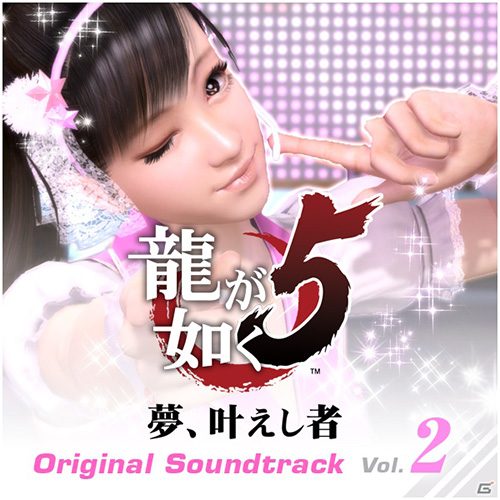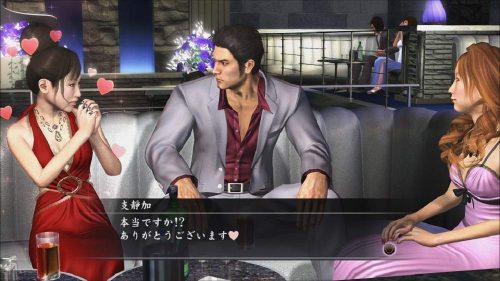
For our concluding article, it’s only natural to cover some of Yakuza’s unique controversies. Despite Sega’s initial concerns with portraying organized crime in a game, it was just the bottom of the barrel of what was to come. Granted the franchise hasn’t faced the wrath of Hillary Clinton like Grand Theft Auto did, it has had to react to public opinion both domestically and internationally.
Celebrity Scandals
One of the most recent scandals affecting the franchise was the March 2019 arrest of Pierre Taki, a Japanese celebrity whose voice and likeness was used to portray Hamura, one of the antagonists of Judgment. At the time, the game was barely out in Japan and it was still another three months before its international release. Due to Sega not wanting their product to be involved with someone facing drug charges, they briefly halted production in Japan and replaced the Hamura character with a new actor for all markets. While non-Japanese people reasonably feel this is an overreaction, Japan takes the whole guilt by association to different levels due to cultural reasons.
Cut Content
Beyond non-Japanese audiences having to wait a year or three for each installment, the series has had its share of controversy with its international audience. In the original PS3 international release of Yakuza 3, it notably cut the hostess clubs, shogi, mahjong, and a quiz game. Apparently, they were cut due to wanting to get the game released on time, and that some of the content were cultural oriented and that most non-Japanese gamers would be able to identify with them.
Ironically, fans were actually upset with these removals because they feel that their inclusion adds more to the cultural identity and immersion of the series. For the remaining international releases on the PS3, such content would be kept. Thankfully, the international PS4 remaster of 3 brings back the cut content to the pleasure of the fans. However, for releases in all regions, due to recent changes in society, a side story revolving a transgender was cut by Nagoshi’s orders.
Another notable controversy amongst the international fanbase is how two games, Kenzan and Ishin, have yet to be released. While they aren’t officially part of the main franchise, they portray Japanese history. Kenzan, an early PS3 release, takes place in the early 17th century where Kiryu is portrayed as Miyamoto Musashi, and Ishin, taking place in the 1880’s, has Kiryu representing Ryoma Sakamoto. Representatives from Sega have addressed the situation by saying it’s too complex to localize, and they presently can’t find the time to release them. Considering both games take inspiration and liberties from actual Japanese history, they don’t see how it can relate to non-Japanese audiences. Considering the success of Sekiro, difficulties in finding ways to localize it shouldn’t be an acceptable reasons. For all we know, it could probably help educate players to a certain degree.
Karaoke/Licensing
Going back to Judgment, another controversy is that despite the Karaoke Kan (a real life Karaoke chain in Japan) having its exterior displayed, the Yagami character can’t enter and sing. Some Western fans were upset by this without understanding why. In addition to being a successful actor, Takuya Kimura, who plays Yagami, is also an accomplished singer. Long story short, getting him to sing requires a different licensing agreement, and getting it licensed internationally would just open up a can of worms. These issues also contribute as to why certain songs in the Japanese releases such as Bubble from 0, Soubou from 6, and Loser from 3 can’t be in international releases.
Shenmue Successor? Japanese GTA?
Ever since the series debuted, the franchise has largely and reasonably been compared to Shenmue and Grand Theft Auto. Considering Nagoshi’s involvement in Shenmue, and with the game being a simulation of Japan, lots of people like to call Yakuza the spiritual successor to Shenmue. On the other hand, people like to call it the Japanese GTA since it portrays Japan’s world of crime.
However, a good number of fans disagree. Many mechanics between Yakuza, Shenmue and GTA are notably different to make Yakuza its own distinguishing game, which is why some don’t welcome the comparisons. As for comparing it to GTA, Nagoshi has publicly shared he isn’t a fan of that series by saying he can’t promote the idea of killing people or committing crimes as fun. When you play Yakuza, you can’t exactly randomly punch or shoot NPCs, or highjack cars. In most instances, how crime operates in Japan is its own unique thing due to cultural differences and this game does a great job of portraying how the yakuza has its own unique values, which is what Nagoshi wants to emphasize.
Final Thoughts

As we close, one of the franchise’s latest controversies is how the upcoming 7th release is forgoing the action oriented combat for turn-based RPGs mechanics. We understand the old saying that if it isn’t broke, don’t fix it, but Sega has publicly shared why they’re making these changes as it relates to its story and its new main character, Ichiban Kasuga. In addition to the staff being fans of RPGs, they feel that with Ichiban’s story of starting from the bottom and rising to the top, that the grinding and leveling up you see in RPGs best reflect that struggle. In addition, it has themes of making friends and working together and those RPG elements help tell that story. Last, they even said they’re willing to go back to the old system.
As the series enters its 15th year, it continues to evolve and is willing to try new things. Now that they’ve gotten Takuya Kimura and Takeshi Kitano, who knows where they can go next with celebrities. Will they get present Prime Minister Shinzo Abe? Or get actual or former yakuza members? All we can do is stay loyal to the franchise and find out!

